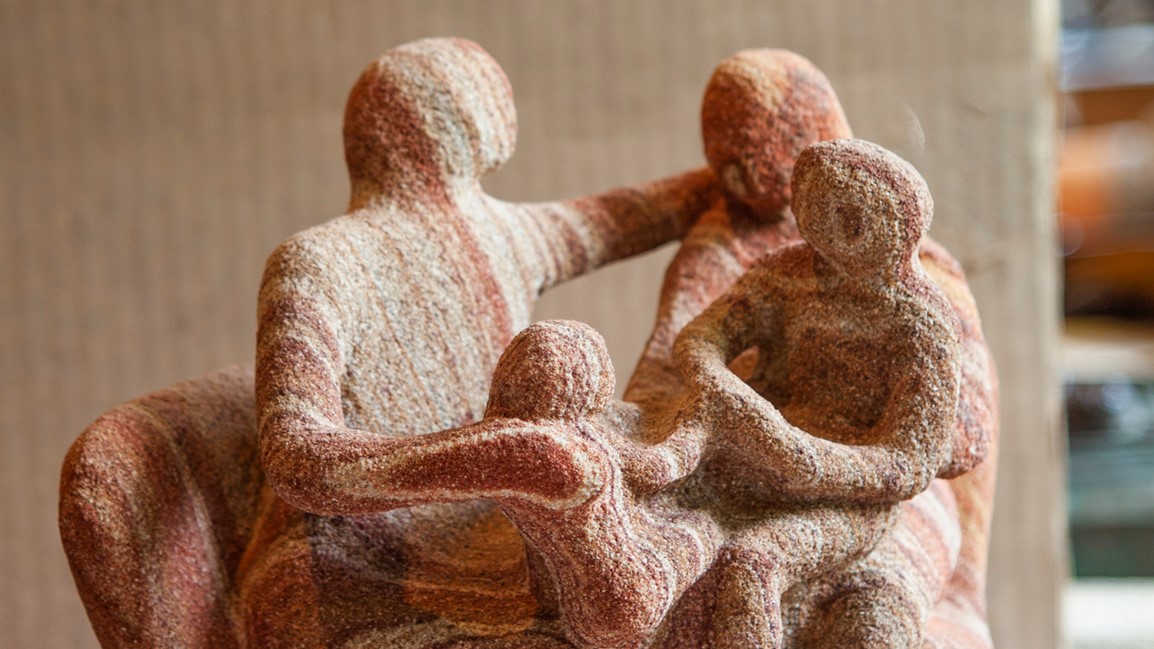
Romans 8:14-17
Pentecost C
14 For all who are ledA by the SpiritB of GodC are childrenD of God.
A “led” = ago. This is lead, bring, carry, guide, drive, go.
B “Spirit” = Pneuma. From pneo (to blow, breathe, breathe hard). This is wind, breath, or ghost. A breeze or a blast or air, a breath. Figuratively used for a spirit, the human soul or part of us that is rational. It is also used supernaturally for angels, demons, God, and the Holy Spirit. This is where pneumonia comes from.
C “God” = Theos. From Proto-Indo-European origins, meaning do, put, place. This is God or a god in general.
D “children” = huios. This is son, descendant – a son whether natural born or adopted. It can be used figuratively for other forms of kinship.
15 For you did not receiveE a spirit of slaveryF to fall back into fear,G but you received a spirit of adoption.H
E “receive” = lambano. It does not refer to passive receiving of something, but active acceptance or taking of something whether it is offered or simply nearby. It focuses on individual decision and action.
F “slavery” = douleia. 5x in NT. From douleo (to be a slave, be in bondage, to serve, obey, be devoted; it is to be a slave in a literal or figurative sense); from doulos (a servant or for a slave, enslaved; someone who belongs to someone else; could be voluntary (choosing to be enslaved to pay off debt) or involuntary (captured in war and enslaved)); from deo (to tie, bind, fasten, impel, compel; to declare something against the law or prohibited). This is slavery, bondage, or enslavement in a literal or figurative sense.
G “fear” = phobos. From phebomai (to flee, withdraw, be put to flight). This is panic flight, fear, fear being caused, terror, alarm, that which causes fear, reverence, respect.
H “adoption” = huiothesia. Related to “children” in v14. 5x in NT. From huios (see note D above) + tithemi (to put, place, set, fix, establish in a literal or figurative sense; properly, this is placing something in a passive or horizontal position). This is making a son, adoption.
When we cry,I “Abba!J Father!”K
I “cry” = krazo. This is to cry out, scream, shriek. It is onomatopoeia for the sound of a raven’s call. Figuratively, this means crying out urgently without intelligible words to express something that is deeply felt.
J “Abba” = Abba. 3x in NT. From Aramaic ab (father); corresponding to Hebrew ab (father in a literal or figurative sense – grandfather, chief, ancestor). This is abba, which means father – not a diminutive daddy.
K “father” = pater. This is father in a literal or figurative sense. Could be elder, senior, ancestor, originator, or patriarch.
16 it is that very Spirit bearing witness withL our spirit that we are childrenM of God, 17 and if children,N then heirs:O
L “bearing witness with” = summartureo. 3x in NT. From sun (with, together with) + martureo (to bear witness, testify, give evidence; to testify in a literal or figurative sense); {from martus (a witness whether having heard or seen something; witness literally, judicially, or figuratively; by analogy, a martyr)}. This is to testify together with. It can also mean to corroborate.
M “children” = teknon. From tikto (to beget, bring forth, produce). This is a child, descendant, or inhabitant.
N “children” = teknon. Same as “children” in v16. See note M above.
O “heirs” = kleronomos. 15x in NT. From kleros (lot, portion, heritage; that share assigned to you; also a lot used to determine something by fate, chance, or divine will); {perhaps from klero (casting a lot) or from klao (to break in pieces as one breaks bread)} + the same as nomos (what is assigned – usage, law, custom, principle; used for the law in general or of God’s law; sometimes used to refer to the first five books of the Bible or the entire Old Testament; also used to refer to theology or the practice and tradition of interpreting and implementing the law of God); {from nemo (to parcel out, assign)}}. This is heir, inheritor, or possessor – whether literal of figurative.
heirsP of God and joint heirs withQ Christ,R if we in fact suffer withS him so that we may also be glorified withT him.
P {untranslated} = men. This is truly, indeed, even, in fact. Often, it is not translated, but used to emphasize affirmation.
Q “joint heirs with” = sugkleronomos. Related to “heirs” in v17. 4x in NT. From sun (with, together with) + kleronomos (see note O above). This is a joint heir, participant, or co-inheritor.
R “Christ” = Christos. From chrio (consecrate by anointing with oil; often done for prophets, priests, or kings). Literally, the anointed one, Christ. The Greek word for Messiah.
S “suffer with” = sumpascho. 2x in NT. From sun (with, together with) + pascho (to be acted on for good or ill; often used for negative treatment; properly, feeling strong emotions – especially suffering; can also be the ability to feel suffering). This is to suffer with or sympathize – it is shared pain or can be used specifically to refer to persecution.
T “be glorified with” = sundoxazo. 1x in NT. From sun (with, together with) + doxazo (to render or hold something as glorious, to glorify, honor, magnify, or celebrate; ascribing weight to something by recognizing its true value or essence); {from doxa (glory, opinion, praise, honor, renown; particularly used as a quality of God or manifestation of God – splendor); from dokeo (to have an opinion, seem, appear, suppose; a personal judgment; to think); from dokos (opinion)}. This is glorified together, shared approval, exalting in joint dignity.
Image credit: “Sandstone Family” by Will Salisbury. Photo by Richard Margolis, 2019.
